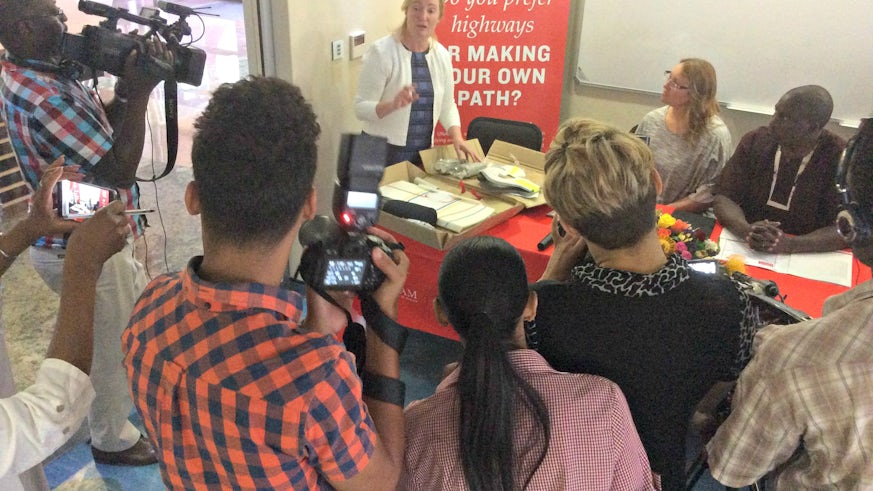Bid to cut Namibian roads death toll
24 March 2017

Cardiff University is leading essential life-saving training for police officers in Namibia to help tackle extremely high death rates on the country’s roads.
Professor Judith Hall has worked with partners at Cardiff Metropolitan University to design a low cost ‘trauma pack’ as part of Cardiff University’s transformative Phoenix Project.
Police officers will be trained to use the trauma packs, which have been designed for deployment following traffic collisions.
To improve health and reduce poverty
Doctors from the Welsh NHS will carry out the training from 29 May to 9 June 2017, with each police officer receiving a day’s training ahead of a six-month trial in Namibian capital Windhoek.
The Phoenix Project is a partnership with the University of Namibia to improve health and reduce poverty in Namibia.
Professor Hall, who leads the Phoenix Project, said: “The trauma packs will save lives because too many people are dying following crashes on Namibia’s roads...”

“Once the training has been carried out, these police officers will be equipped to carry out basic life-saving techniques until medical help arrives at the scene.”
“If the pilot scheme works, we’ll then look to roll it out across the country.”
The six-month pilot project – also working with other emergency services personnel - will see Wales-based doctors led by Dr Brian Jenkins from Cardiff University training 150-200 police officers.
The doctors, mainly from Cardiff and Vale University Health Board, will teach the officers life-saving procedures using the trauma packs, which contain equipment such as neck collars, bandages and a stretcher.
The 'golden hour'
The officers, who are due to be equipped with the packs from September 2017, will use them in the first ‘golden hour’ following traffic collisions when lives are most likely to be saved.
Police officers were chosen to take part because they are often first at a crash scene but currently have limited life-saving training.
Superintendent Cillie Auala, Windhoek City Police Public Relations Officer, said: “This is a great initiative...”
“Taking into account the country’s high accident rate, and being first responding officers to accident scenes, I am confident that this training would play a significant role in ensuring that many lives are saved.”
Professor Kenneth Matengu, UNAM Pro Vice-Chancellor (Research, Innovation and Development), said: “University of Namibia is delighted working alongside Cardiff University and our police forces in this important drive for road safety.
“This new, easy to use, affordable trauma pack will help save the lives of our citizens...”

“Our police officers will receive first responder education and be able to immediately take the correct actions with the trauma pack in road traffic collisions.”

Trauma packs designer Dr Clara Watkins, of Cardiff School of Art & Design at Cardiff Metropolitan University, said: “The design of the packs has been modified so that they’re tailor-made to fulfil the needs of Namibia...”
“They’re low cost, portable and contain essential medical equipment that will help police officers to carry out basic life-saving treatment following crashes.”
The packs – developed with clinicians from the Welsh National Health Service and industry partner BCB International - have been field tested in Zambia through Professor Hall’s Mothers of Africa charity, with support from the Welsh Ambulance Service and first responders in Wales.
International Red Cross and the UK’s Royal Centre for Defence Medicine have also assisted with testing and development.
Share this story
Find out about the work we're doing, the impact it's had and the people involved.



